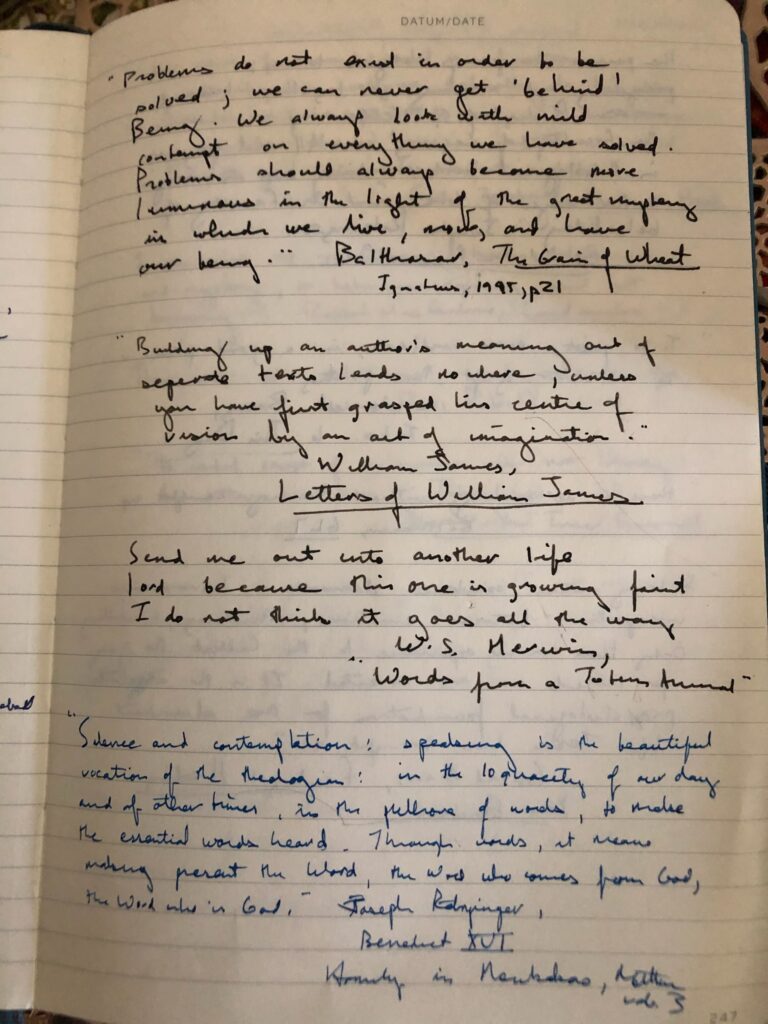
I recently finished the sixth novel in the Starbridge series by Susan Howatch, Absolute Truths. I ‘ve very much enjoyed the entire series, and I commended the first novel, Glittering Images, as my favorite novel from last year. I was eager to read this closing volume because it is narrated by the same priest, now bishop, who narrated Glittering Images, and he was the character I personally most identified with in the whole series, both in terms of theology and temperament.
I’ll post some quotes from the novel in a different post, but here I wanted to point out Howatch’s masterful use of epigraphs. In each novel of the six novels, Howatch opens each chapter and section with a quote from a theologian or prominent figure from the Church of England. The figures she selects typically reflect the theology and spirituality of the narrator, but they also reflect the larger Church of England within the time frame of each of the novels. The epigraphs are interesting on their own, and they never distract from and often illuminate the scene that will follow in terms of character motivations. They also offer a broader sense of the Church of England at the time. I found her use of epigraphs to be masterful precisely because of this mutual informing quality, namely that I learned more about the characters through the epigraphs, but I also learned more about the Church of England through the thoughts and actions of the characters, especially the narrators.
I was especially delighted to find that Howatch selected Austin Farrer for her epigraphs in Absolute Truths. Farrer is someone I’ve blogged about here, and he is a figure I’m increasingly fascinated with. His lectures on scripture, metaphysics, and poetry collected in The Glass of Vision are extremely stimulating, and I hope to post some thoughts on his account of revelation in the future.
For now, here are a few epigraphic gems from Farrer:
“No doubt it would be more suitable for a theologian to be absolutely pickled in devout reflection and immune from all external influences; but wrap ourselves round as we may in the cocoon of ecclesiastical cobwebs, we cannot altogether seal ourselves off from the surrounding atmosphere.” Austin Farrer, Said or Sung
“The universal misuse of human power has the sad effect that power, however lovingly used, is hated.” Austin Farrer, Said or Sung
“Temptation is what distracts us, beguiles us or bullies us off the path. Temptation is what makes real life different from the world of our dreams is what makes real life different from the world of our dreams. We dream a world which is wax under the moulding of our ambitions or of our aspirations; we meet a world which faces us with trials we have not the character to surmount, and with seductions we have not the virtue to resist.” Austin Farrer, A Celebration of Faith





